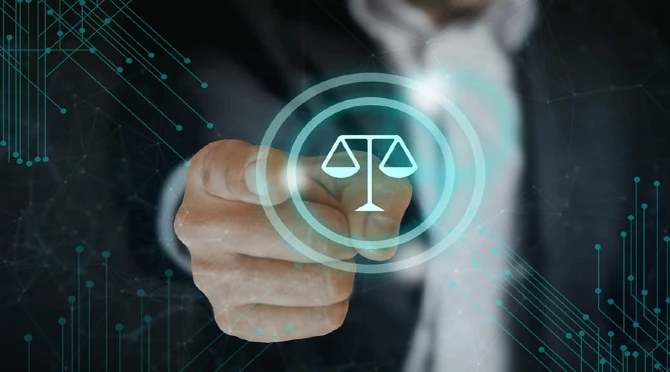
The Delhi Courts have entered the era of Artificial Intelligence (AI) with their first ‘Pilot Hybrid Court’ equipped with a ‘Speech to Text Facility’, allowing AI to take dictation and convert spoken words into text for judges during evidence recording.
This advancement will save time and enhance the working capacity of judges and court staff, particularly stenographers.
Justice Manmohan, Acting Chief Justice of the Delhi High Court inaugurated the first AI-equipped pilot hybrid courtroom at Tis Hazari Court on Friday and launched a digital court app.
On this occasion, Justice Manmohan emphasized the importance of utilizing technology to enhance the legal system and reduce delays in justice delivery.
The ‘Pilot Hybrid Court’ features a speech-to-text facility for evidence recording, and the digital court application is designed for judicial officers to access all e-filed cases. The Acting Chief Justice stressed the need to harness technology to improve the legal system, ensuring that those accused of crimes are brought to justice and that delays are minimized. He described the speech-to-text facility as a powerful tool with the potential to be a game-changer.
The speech-to-text facility for recording evidence is equipped with advanced technologies such as ‘Automatic Speech Recognition’ and ‘Large Language Models’, efficiently converting spoken words into written text displayed on the system’s screen. The ‘Digital Court Application’ is a desktop application for judicial officers, featuring a document upload function to ensure that all physical documents presented in court are available in digital form within the Case Information System (CIS).
Justice Manmohan highlighted that the facility exemplifies the correct application of AI technology and mentioned ongoing efforts to promote paperless courts. He commended the IT Committee headed by Justice Rajiv Shakdhar for their efforts and excellent work.
However, Justice Manmohan also warned that technology can be misused to violate laws and commit crimes. He noted that technology is often used to circumvent laws and promote infringement, emphasizing the need to use technology correctly to enforce conformity with the law.
He further discussed the technology’s potential to address staff shortages in the courts. “As Chief Justice, the biggest problem I face is the shortage of stenographers. I believe this speech-to-text facility will significantly alleviate this issue, especially for recording evidence by joint registrars and the district judiciary,” he said.
Justice Manmohan also pointed out the financial challenges, stating, “We require a lot more finances. Naturally, the state has its own priorities, leading to some arguments that we must resolve.” He revealed that efforts are underway to develop hybrid court facilities in all 691 district courtrooms in Delhi, with a budget of approximately Rs 387 crore. Fourteen pilot projects are in the pipeline.
On this occasion, Justice Suresh Kumar Kait, Justice Shakdhar, Justice Purushaindra Kumar Kaurav, Justice Sanjeev Narula, Justice Tushar Rao Gedela, Justice Girish Kathpaliya, Principal District and Sessions Judge (Headquarters) Sanjay Garf, Principal District and Sessions Judge (West) Vinod Kumar, Senior Advocate Mohit Mathur, President of the Delhi High Court Bar Association, and Nitin Ahlawat, President of the Delhi Bar Association, were also present.




